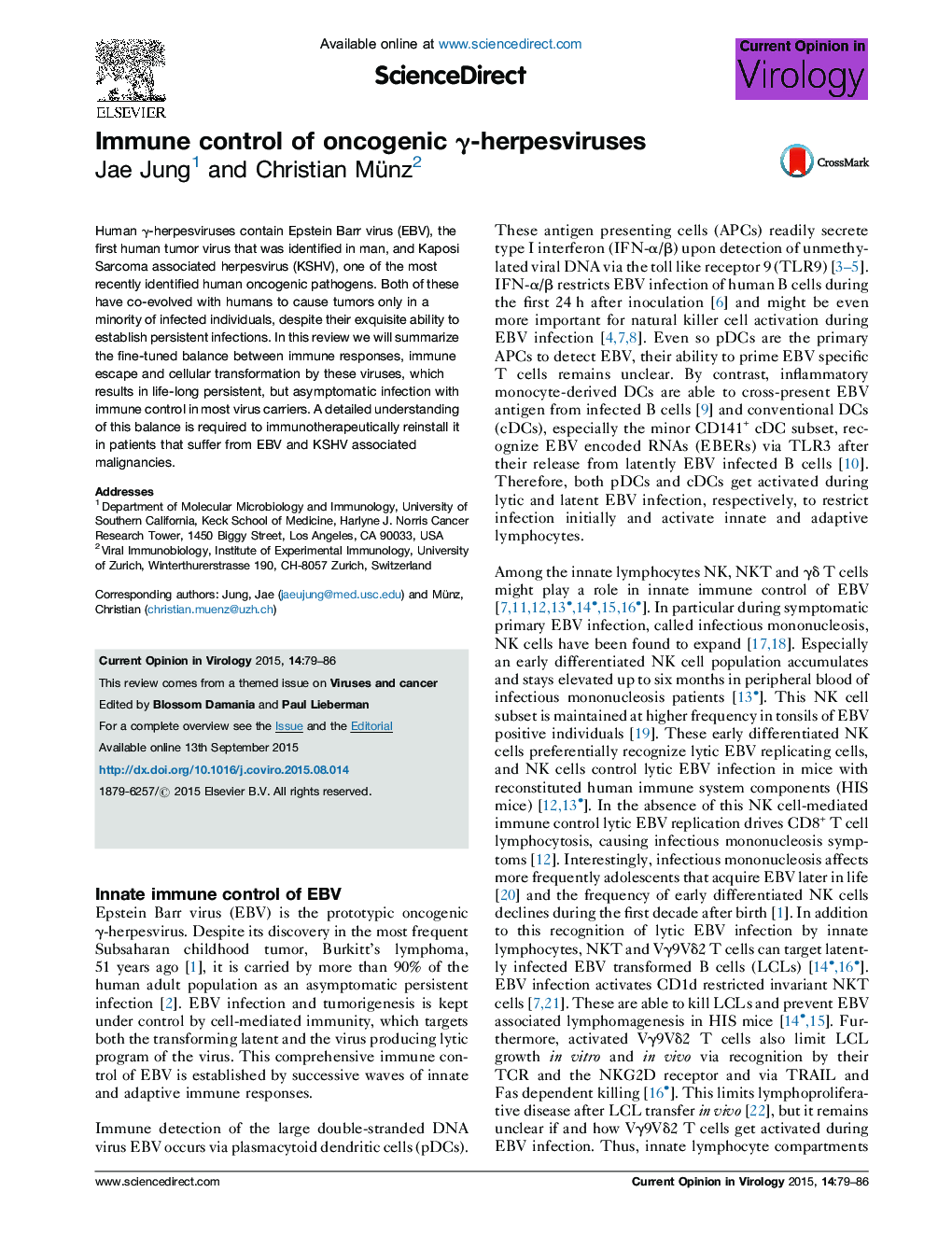| Article ID | Journal | Published Year | Pages | File Type |
|---|---|---|---|---|
| 2473251 | Current Opinion in Virology | 2015 | 8 Pages |
•Innate lymphocyte responses determine the outcome of primary EBV infection.•Different EBV immune evasins compromise early and late lytic antigen recognition by T cells.•KSHV compromises interferon responses with several immune evasins.•Different forms of cell death are targeted by KSHV gene products.•Receptor down-regulation by KSHV blocks both innate and adaptive lymphocytes.
Human γ-herpesviruses contain Epstein Barr virus (EBV), the first human tumor virus that was identified in man, and Kaposi Sarcoma associated herpesvirus (KSHV), one of the most recently identified human oncogenic pathogens. Both of these have co-evolved with humans to cause tumors only in a minority of infected individuals, despite their exquisite ability to establish persistent infections. In this review we will summarize the fine-tuned balance between immune responses, immune escape and cellular transformation by these viruses, which results in life-long persistent, but asymptomatic infection with immune control in most virus carriers. A detailed understanding of this balance is required to immunotherapeutically reinstall it in patients that suffer from EBV and KSHV associated malignancies.
